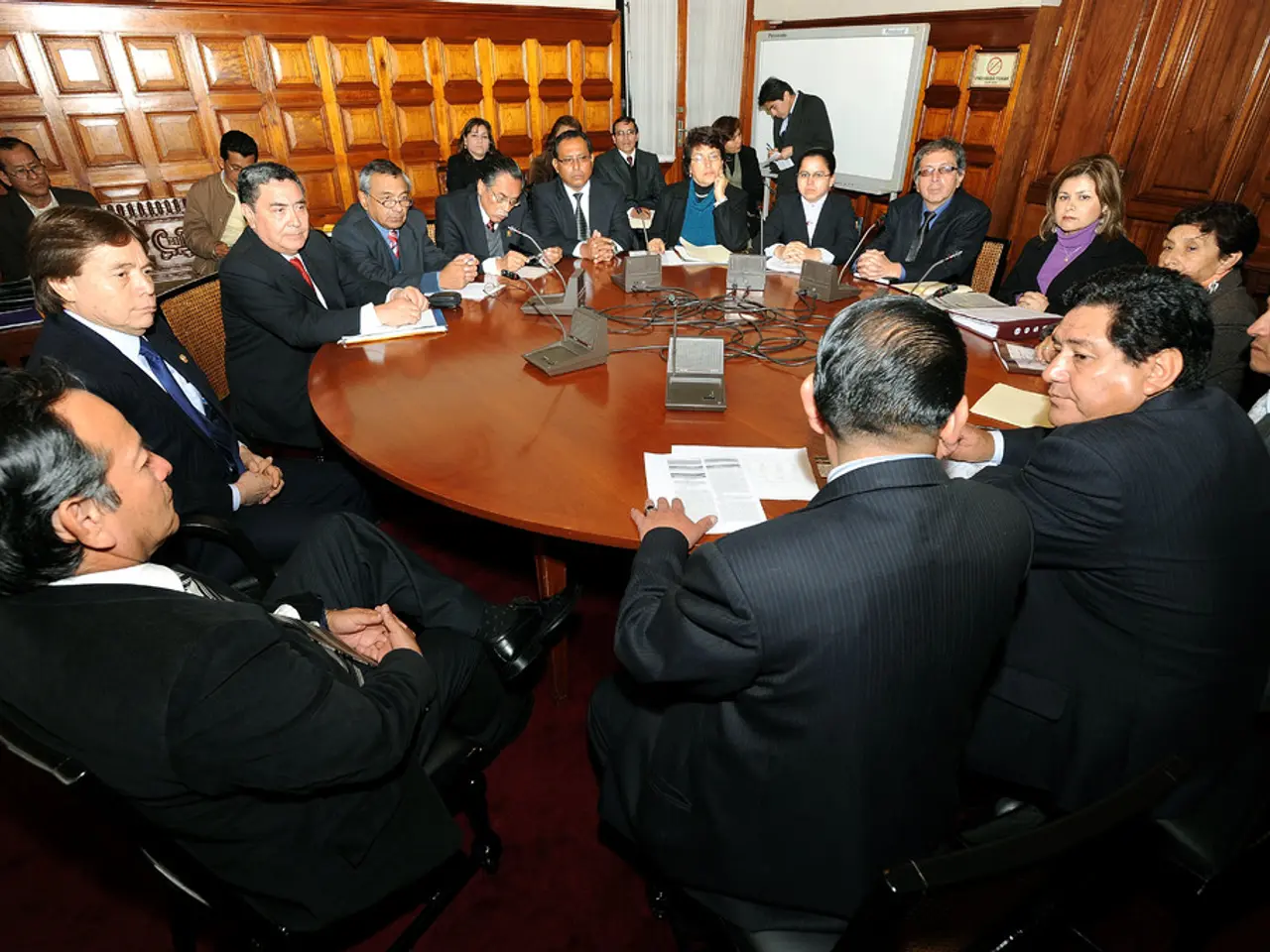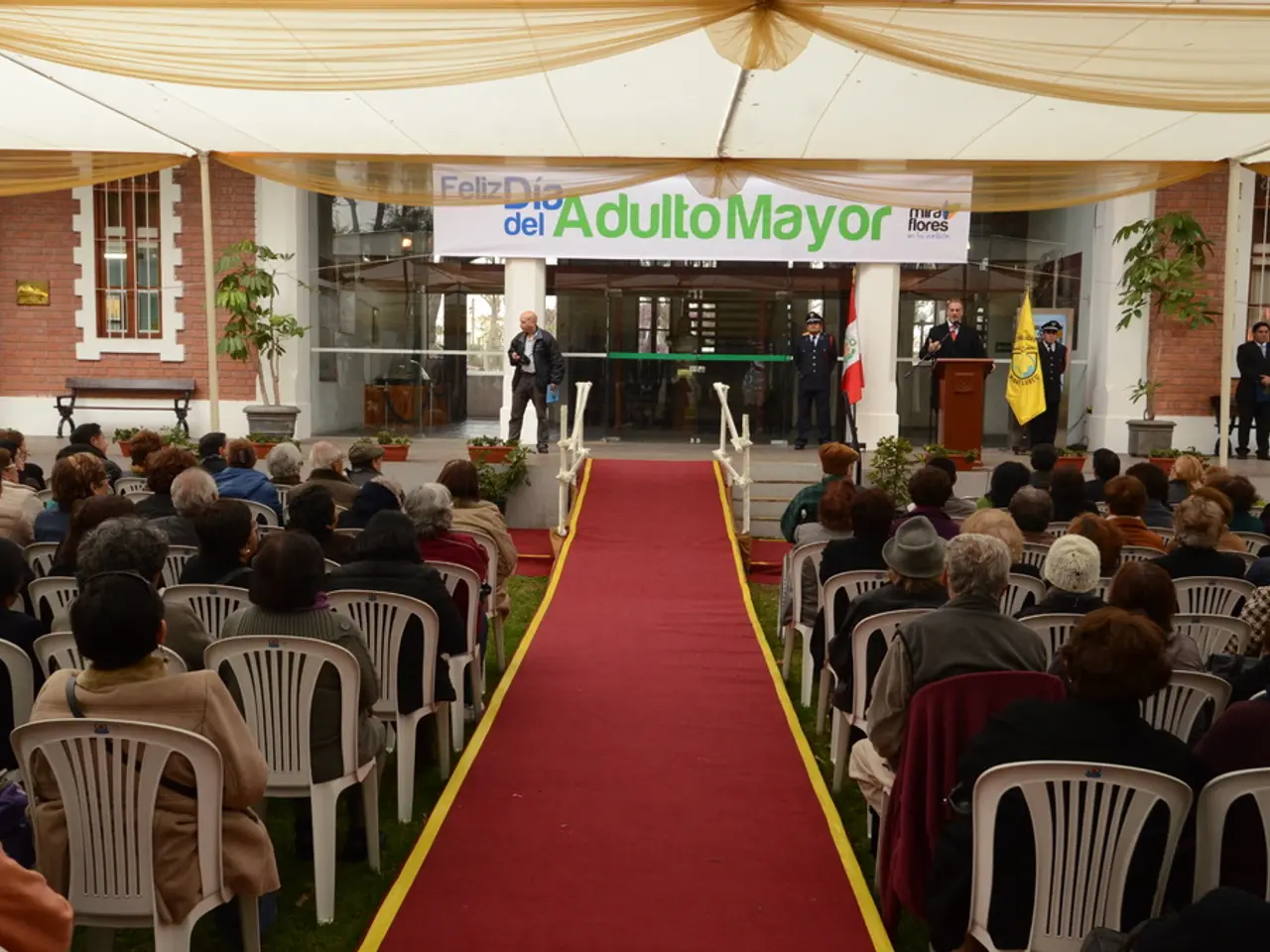Judge appointments undergo proposed revamp, as per Woidke's proposal
Germany's Federal Constitutional Court Nomination Process Disrupted by SPD-CDU/CSU Disagreement
The nomination process for judges at Germany's Federal Constitutional Court has been thrown into disarray due to a dispute between the Social Democrats (SPD) and the Christian Democratic Union/Christian Social Union (CDU/CSU). The controversy centres around the nomination of Frauke Brosius-Gersdorf, a candidate backed by the SPD.
Traditionally, the SPD and the CDU/CSU alternate the right to propose candidates, and a two-thirds majority in the Bundestag or Bundesrat is required to elect judges to the Federal Constitutional Court. This process emphasizes consensus to maintain the court's neutrality and authority.
However, in 2025, Brosius-Gersdorf faced controversy, leading to her resignation from the nomination. This dispute exposed tensions between the major parties, leading Brandenburg's SPD Minister-President Dietmar Woidke to announce plans to replace all three existing candidates and overhaul the candidate list.
Woidke believes that a quick solution is necessary to resolve the deadlocked dispute over the filling of the positions at the Federal Constitutional Court. He advises involving the opposition parties, excluding the AfD, early on in the process. The parties needed for a two-thirds majority, which include the Left party and the Greens, should be involved early on, according to Woidke.
The Union has nominated the federal labor court judge Günter Spinner as an alternative candidate. However, the SPD has proposed constitutional lawyer Ann-Katrin Kaufhold as an alternative candidate. It is unclear why a qualified candidate like Kaufhold has been discredited by parts of the CDU/CSU, according to Woidke.
The stalemate and subsequent withdrawal of Brosius-Gersdorf illustrate how disagreements between SPD and CDU/CSU on nominations can delay and complicate the appointment process. Despite the political nature of appointments, established parties strive for consensus to avoid politicizing the court, which is viewed as a pillar of democracy in Germany.
Woidke expresses his disappointment that the CDU/CSU was unable to follow the agreed path due to a lack of leadership. He finds it unclear why a qualified candidate has been discredited by parts of the CDU/CSU. Woidke states that the previous approach does not reflect well on the coalition at the federal level.
In summary, the disputes between SPD and CDU/CSU regarding Frauke Brosius-Gersdorf’s nomination have led to a rare break in the customary smooth consensus-driven appointment procedure, triggering a reconsideration of candidates and underlining ongoing challenges in balancing political interests with the court's impartiality. Woidke emphasizes that the previous candidates could stand for election in a new procedure.
Policy-and-legislation: The disputes between SPD and CDU/CSU regarding Frauke Brosius-Gersdorf’s nomination have led to a potential change in the candidate list, which could implicate future policy-making decisions at Germany's Federal Constitutional Court.
General-news: The stalemate and subsequent withdrawal of Brosius-Gersdorf have highlighted the importance of politics in the nomination process, revealing ongoing challenges in balancing political interests with the court's impartiality, making it a point of general-news interest.






